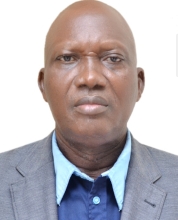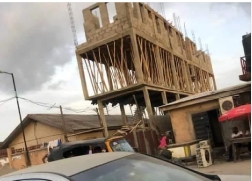
THE Lagos State Government has announced that collaborative strategies were being harmonised to actualise the state’s master plan to curb gridlock and deliver a sustainable liveable city.
The core infrastructure ministries of the state government announced the synergy to ease gridlock and decongest the city at a forum in Lagos.
The event was hosted by Master Builders Construction Chemicals (MBCC) for Lagos State at the Real Estate Unite Summit in Victoria Island. The forum was for MBCC to interact with the state’s leading voices in infrastructure to get insights on the direction of present and future policies toward sustainable infrastructure.
The panel had as its title: “Sustainable Infrastructure: Regulatory frameworks and policies to create an enabling environment for sustainable infrastructure in Lagos State”.
Leading the panel discussions, the Special Adviser to Gov. Babajide Sanwo-Olu on Works and Infrastructure, Mrs Aramide Adeyoye, said the ongoing synergy was in line with the Strategic Transportation Master Plan (STMP) of the state.
She said the plan was responsible for ongoing massive infrastructure boost towards perfecting interconnectivity.
She hinted that plans were being fine tuned for take off of construction of the proposed 38km Fourth Mainland Bridge project before the end of year 2022.
She explained that the draft concession agreement was almost completed.
Adeyoye added that “any city that is liveable must be well planned”, adding that no fewer than 10,000 people migrate daily to Lagos hence the government must adopt measures to ensure well-being.
The Managing Director of the Lagos Metropolitan Area Authority (LAMATA), Dr Abimbola Akinajo, said that the ongoing blue and red rail line projects were in progress and with a target to be completed in 2022.
According to her, the facilities will be operational in the first quarter 2023.
She said the state was designing mass transportation buses to take between 70 to 100 passengers at a go to reduce carbon emissions to protect the environment.
She said that transport connectivity was being incorporated with housing designs that targeted people living in homes where they could work, live and play to reduce commuting.
She said any city that must function properly cannot rely on roads alone hence ongoing intermodal connectivity.
“About 22 million trips a day and 92 per cent of them are by road and there is a need to remove people from the road and put them on other modes,” she said.
Speaking on the ban on commercial motorcycles on some highways and bridges, she joined other panelists to appeal to residents to endure temporary discomfort for the collective progress of all residents. Dr Idris Salako, the Commissioner for Physical Planning and Urban Development, represented by a Director, Mr Bola Aliu, said that vertical buildings were being adopted to deal with population explosion.
He said the realisation of the master plan for various areas in the state required research, adding that data collection was ongoing for successful implementation.
He added that Lagos had limited land mass, adding that the human factor of flouting rules was affecting government regulation. “We need to rethink planning,” he said.







